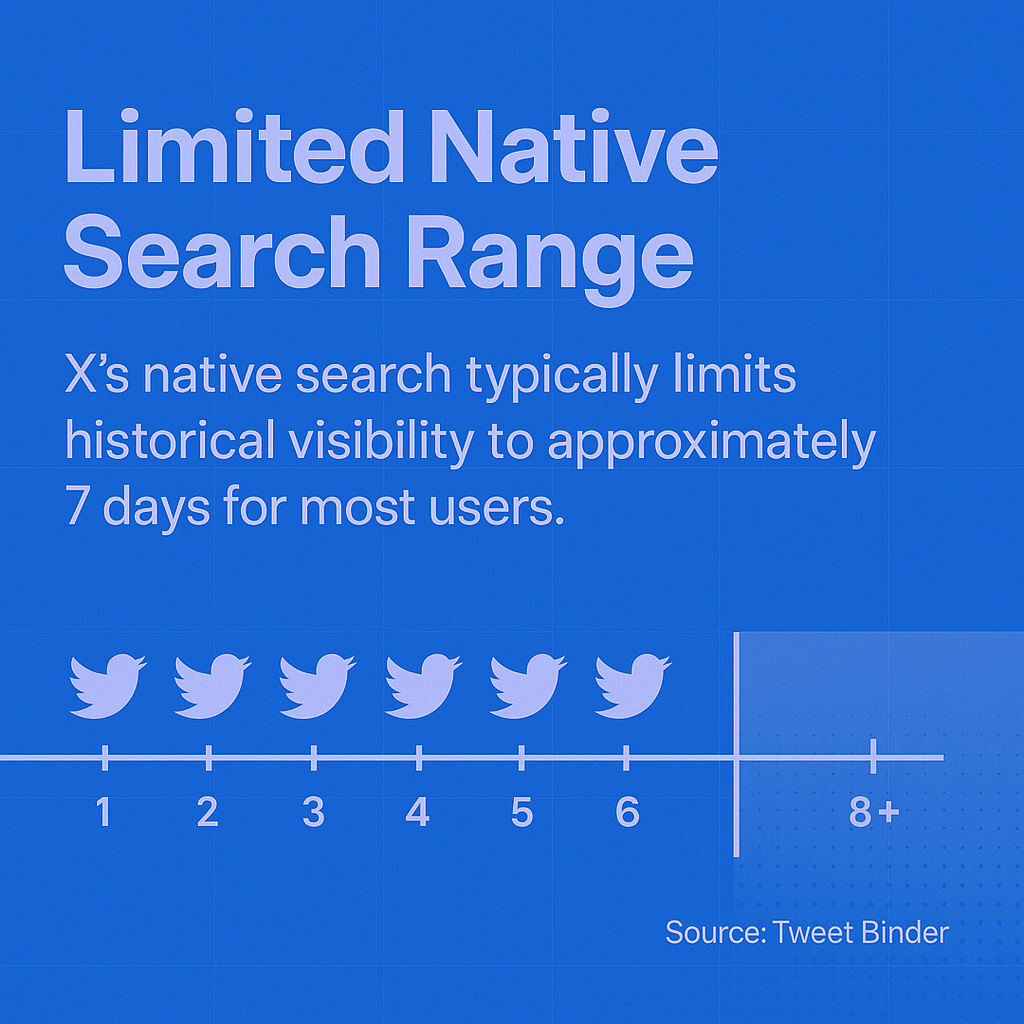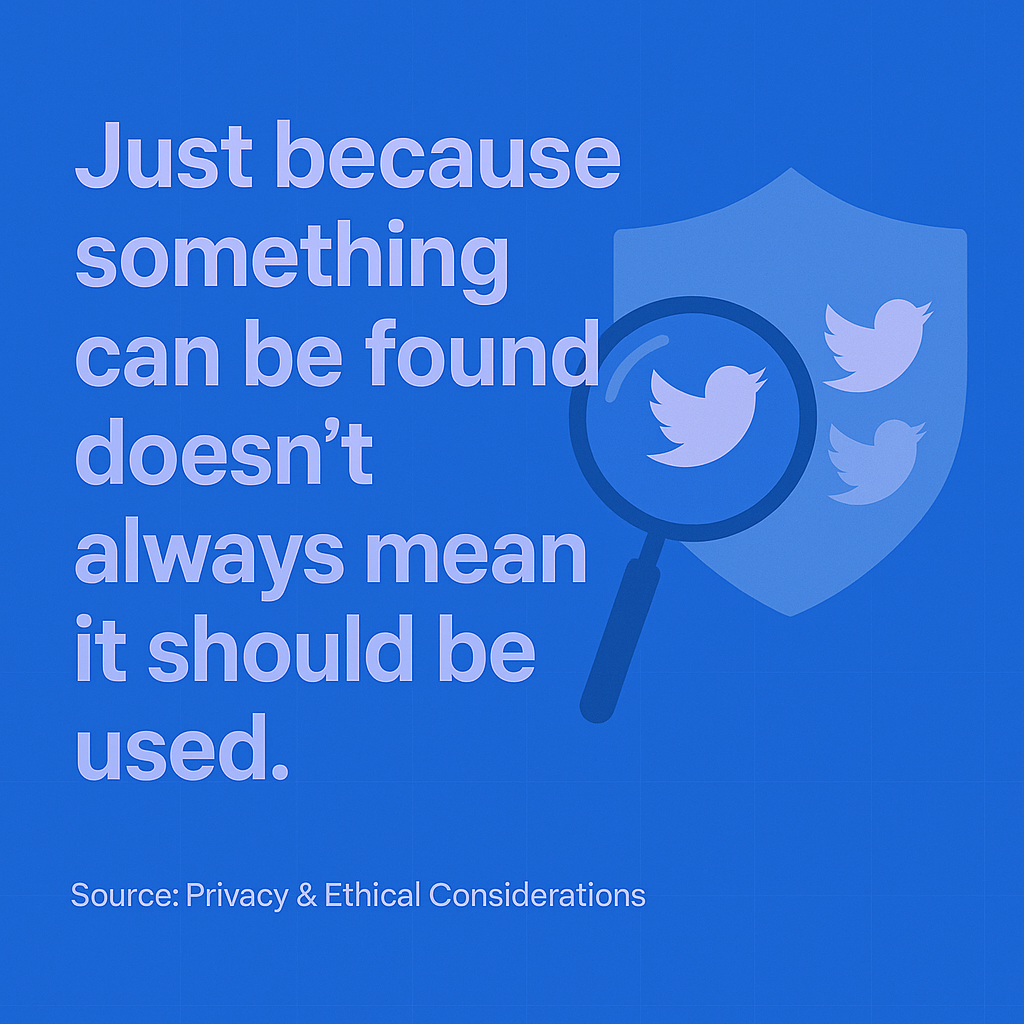Finding old tweets can feel like searching for a needle in a digital haystack. Whether you’re trying to locate your own past content or conducting research, knowing how to search tweets history on X (formerly Twitter) saves valuable time and unlocks insights that might otherwise remain buried.
As someone who values data-driven approaches to social media, I believe historical content holds tremendous strategic value. Old tweets capture moments in time that can inform your content strategy, provide competitive intelligence, or help you track the evolution of conversations in your industry.
In this guide, I’ll walk you through exactly how to find historical tweets using both X’s native search capabilities and third-party tools. You’ll discover practical techniques that work for different time frames and search needs.
Understanding X’s Search Capabilities
Before diving into specific search methods, it’s important to understand what’s possible with X’s search functionality and where its limitations begin. The platform handles recent content well but struggles with historical access.

X serves an enormous user base. The platform has 611 million active users, generating countless tweets daily.
Despite this massive scale, X’s standard search features have significant time constraints. This creates challenges for anyone trying to access older content.
Let’s compare the capabilities of X’s native search tools versus third-party solutions to help you understand your options:
| Feature | X Native Search | Third-Party Tools |
|---|
| Historical Reach | Typically limited to ~7 days | Can access years of history |
| Cost | Free | Often requires payment |
| Search Complexity | Basic to moderate | Advanced filtering |
| Data Export | Limited/Manual | Often available |
As this comparison shows, your choice depends on how far back you need to search and what features matter most to your specific needs.
X offers several built-in ways to search for tweets. These methods work well for recent content and provide a starting point for your historical searches.
The search bar at the top of your screen serves as your primary tool. With it, you can find tweets containing specific keywords, phrases, or from particular accounts.
Basic Search Operators
Search operators function like commands that tell X exactly what you’re looking for. Using these operators makes your searches more precise and effective.
Here’s a reference table of the most useful search operators for finding historical tweets:
| Operator | Function | Example |
|---|
| from: | Find tweets from a specific account | from:@username |
| to: | Find tweets sent to a specific account | to:@username |
| since: | Find tweets after a specific date | since:2023-12-25 |
| until: | Find tweets before a specific date | until:2024-01-01 |
These operators become especially powerful when combined. For example, searching for “marketing from:@nealschaffer since:2023-12-01 until:2023-12-31” would find all my tweets containing “marketing” during December 2023.
Date-Based Search Syntax
When searching for historical tweets, understanding date syntax is crucial. X’s search requires dates in YYYY-MM-DD format to function properly.
Some important points about date-based searches:
- No spaces should appear around the colons in your search syntax
- The “until:” operator is non-inclusive (excludes the specified end date)
- Combine date operators with other search terms for more precise results
- Date ranges work best when limited to reasonable time periods (weeks rather than years)
Common date formats you might use include:
| Search Need | Syntax Example |
|---|
| Tweets from last week | keyword since:2024-01-15 until:2024-01-22 |
| Tweets from a specific month | keyword since:2023-12-01 until:2024-01-01 |
| Tweets from a specific year | keyword since:2023-01-01 until:2024-01-01 |
| Tweets from a specific day | keyword since:2023-12-25 until:2023-12-26 |
This structured approach makes finding content from specific time periods much more manageable.
Account-Specific Searches
One of the most common needs is finding historical tweets from a specific account. This approach works especially well when you’re researching your own content or analyzing a competitor’s posts.
To search a specific account’s history, use the “from:” operator followed immediately by the username:
from:@username keyword since:YYYY-MM-DD until:YYYY-MM-DD
For example, if I wanted to find all my tweets about LinkedIn from December 2023, I would search:
from:@nealschaffer LinkedIn since:2023-12-01 until:2024-01-01
Remember that native operators only return results from public accounts. If an account is private or has been suspended, these search methods won’t work.
Advanced Search Techniques
When basic search doesn’t give you enough control, X’s advanced search interface offers more sophisticated options. This feature provides a form-based approach to building complex searches.
Accessing Advanced Search
You can access advanced search by navigating to mobile.twitter.com/search-advanced in your web browser. This specialized search page isn’t available in the mobile app – you’ll need to use a browser.
The advanced search form gives you fields for multiple search parameters including:
This interface makes building complex searches much easier than typing operators manually.
Filtering Options in Advanced Search
The power of advanced search comes from its filtering capabilities. These options let you narrow results to exactly what you need.
Here’s a comparison of how advanced filters help in different search scenarios:
| Search Need | Relevant Filters | Benefits |
|---|
| Finding viral content | Minimum likes, retweets | Identifies high-performing posts |
| Finding visual content | Media type (images, videos) | Focuses on visual elements only |
| Finding conversations | Replies filter | Shows interactions between accounts |
| Finding specific topics | Exact phrase, hashtags | Narrows to precise terminology |
Using these filters strategically helps cut through the noise and find exactly what you’re looking for in X’s vast content ecosystem.
Combining Multiple Search Parameters
The true power of tweet history searches comes from combining multiple parameters. This approach lets you create highly specific queries that target exactly what you need.
For example, imagine you want to find tweets:
- From a specific news organization
- Containing a particular keyword
- Posted during a specific event
- That include images
Advanced search makes this possible through its combination of filters. Rather than sorting through thousands of results, you can zero in on the exact content that matches your criteria.

X’s native search typically limits historical visibility to approximately 7 days for most users. This creates a significant challenge for research that requires older content.
Fortunately, several options exist for accessing tweets beyond this limitation.
When X’s native search can’t reach far enough back in time, third-party services offer extended historical access. These tools tap into different data sources to provide deeper historical searches.
Here’s a comparison of some notable options:
| Tool | Historical Reach | Cost Structure | Best For |
|---|
| Tweet Binder | Unrestricted | Paid plans | Professional research |
| Wayback Machine | Varies by archive | Free | Finding deleted tweets |
| Twitter Archive | Your entire history | Free | Accessing your own tweets |
| Twicopy | Recent months | Free/Premium | Basic historical research |
These Twitter tools provide solutions for different historical search needs, from professional research to personal archive retrieval.
Sometimes the content you’re looking for has been deleted from X. In these cases, web archives may help recover what’s otherwise lost.
The Internet Archive’s Wayback Machine captures snapshots of web pages over time. If it archived a Twitter profile or specific tweet before deletion, you might still find what you’re looking for.
To use this approach:
- Visit archive.org/web
- Enter the full URL of the Twitter profile or tweet
- Browse available snapshots by date
- View archived versions of the content
This method works best for high-profile accounts or viral tweets that were more likely to be archived. It’s not comprehensive but provides a valuable recovery option.
Paid vs. Free Options
When choosing tools for historical tweet searches, the free vs. paid decision depends on your specific needs.
Free options typically offer:
- Limited historical reach (days to weeks)
- Basic search functionality
- Few or no export options
- Limited support
Paid solutions generally provide:
- Extended historical access (months to years)
- Advanced filtering capabilities
- Data export in multiple formats
- Analytics and visualization features
For occasional personal searches, free tools often suffice. For professional research, marketing analysis, or legal purposes, paid options typically deliver better results.
Understanding how to use advanced search to find specific content on X becomes particularly valuable when applied to common use cases. Let’s explore some practical applications.
Research and Analysis
Historical tweet searches provide powerful research capabilities for various professionals:
Marketers can track campaign performance over time, identifying which messaging resonated most with audiences. This historical perspective improves future campaign planning.
Journalists often use tweet history to verify statements, track the evolution of stories, or gather public reactions to past events. These digital breadcrumbs provide valuable context.
Researchers studying social trends benefit from accessing historical conversations about specific topics. With millions of active users creating content daily on X, these archives represent a valuable data source.
Personal Archive Retrieval
Many users need to find their own past content for various reasons:
Portfolio development might require locating your best professional insights shared on the platform. These tweets can demonstrate your expertise chronologically.
Recalling information you previously shared sometimes becomes necessary. Perhaps you mentioned a resource or contact that you now need to reference again.
Nostalgia drives many personal archive searches. Looking back at how you documented life events or reactions to world happenings provides a personal historical record.
Content Curation
Historical tweet searches excel for content curation purposes. Finding evergreen content that remains relevant long after posting helps maximize the value of existing material. These timeless insights can be repurposed across other channels.
Creating themed collections based on specific topics or conversations allows for cohesive content packages. These collections provide comprehensive perspectives on particular subjects.
Tracking the evolution of ideas over time reveals how concepts developed and changed within communities. This progression often yields valuable insights.
The concept of leveraging specialized tools for better Twitter performance applies to historical searches as well. These strategies will help you get better results.
Planning Your Search Strategy
Effective historical searches begin with good planning:
Start with clear objectives. Define exactly what information you’re trying to find before beginning your search. This clarity helps you choose the right approach.
Identify relevant timeframes for your search. Narrowing your date ranges improves both performance and relevance of results.
List key terms, accounts, and hashtags related to your topic. Having these ready before searching saves time and improves consistency.
Understanding the data you find through historical searches can help you develop better Twitter analytics strategies.
Organizing and Saving Search Results
Once you find valuable historical tweets, proper organization becomes important:
Save important search queries for future use. Most advanced tools allow you to save complex searches that you might need to run again.
Export results when possible. Many third-party tools offer export functions to CSV or other formats for analysis.
Create categories or tags for different types of content you find. This organization makes future reference much easier.
Privacy and Ethical Considerations

When searching historical tweets, maintain ethical standards:
Respect privacy boundaries, even with public content. Just because something can be found doesn’t always mean it should be used.
Consider context when reviewing old tweets. Social norms and individual perspectives evolve over time.
Follow proper attribution practices when referencing or sharing historical content you discover.

Conclusion
Searching tweet history on X gives you access to valuable content that might otherwise remain hidden. Whether you’re using native search operators for recent content or third-party tools for deeper historical access, these techniques help you find exactly what you need.
Remember that X’s native search works well for recent content (within about a week), while third-party solutions become necessary for older material. The right approach depends on your specific needs and how far back you need to search.
By combining proper search syntax, advanced filters, and strategic planning, you can uncover valuable historical tweets for research, content curation, or personal archive needs.
What historical content will you search for first? The conversations of the past await your discovery.
Actionable advice for your digital / content / influencer / social media marketing.
Join 13,000+ smart professionals who subscribe to my regular updates.